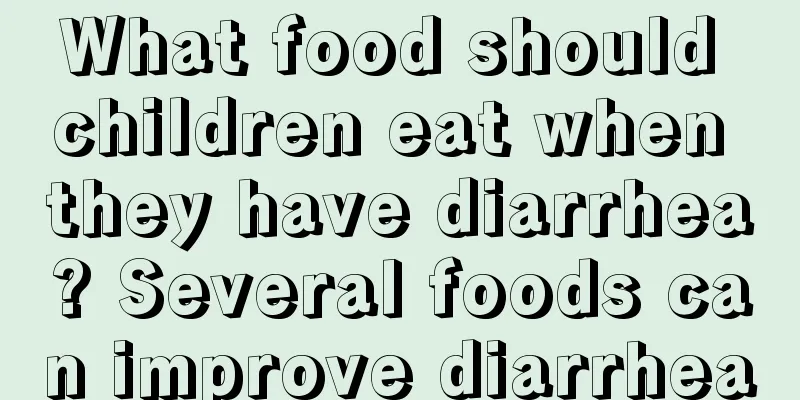What to do if your baby has loose yellow stools

|
For children, their gastrointestinal protection ability is not as perfect as that of adults. Therefore, if they eat something bad, they will show very obvious discomfort, diarrhea is one of the manifestations. So, what should we do if our baby has loose yellow stools? When a child is not feeling well, what parents need to do is to solve the problem. Therefore, we provide you with some practical coping measures so that your baby can return to normal as soon as possible. The stools of breastfed babies are yellow or golden yellow, uniform like ointment, but without odor. They have frequent bowel movements, usually 2 to 4 times a day, and some as many as 7 to 8 times a day. This is called physiological diarrhea. Parents don't need to worry, this is a normal phenomenon, and the diarrhea will disappear automatically when the child grows to a certain age. Babies fed with milk have less bowel movements, 1 to 2 times a day, with a slightly smelly stool. Even if a newborn baby has not eaten anything, he or she will usually pass dark green meconium 10 to 12 hours after birth. After 3 to 4 days of breastfeeding, the stool becomes yellow-green, which is called transitional stool. After that, the stool gradually turns yellow. If the baby does not excrete meconium within 24 hours after birth, or still has no normal bowel movement after about 4 to 5 days, you should consult a doctor in time. Some infants and young children have frequent bowel movements but small amounts of stool, and the stool is mostly green and mucous. If there are fewer curds, it means the child eats too much and the amount of milk should be gradually reduced. Some children still have diarrhea after reducing the amount of milk. This may be hunger diarrhea, and the amount of milk should be increased appropriately. If a child fed with milk has hard and smelly stools, it means that the baby is fed too much milk and too little sugar, and some sugar should be added to the milk. If there is too much sugar, the baby's stool will be foamy, thin and yellow, and have a strong sour taste, and the amount of sugar should be appropriately reduced and the amount of milk should be increased. If an infant or young child has been excreting grayish white stools since birth and has never had yellow stools, but his urine is yellow, it is likely caused by congenital bile duct obstruction. When infants and young children have intestinal infections, they have frequent bowel movements, loose or watery stools, smelly stools with mucus, and often experience vomiting, anorexia, fever, and even dehydration. The children should be taken to the hospital for examination in time. What should I do if my baby has loose yellow stools? I believe that parents who have acquired this knowledge will be able to take treatment measures for their baby in an orderly manner if they encounter this situation again. Therefore, taking care of children is a course that is worth continuous learning for parents. Every parent hopes that their child can grow up healthily. Therefore. We must continue to acquire the knowledge to care for our children. |
<<: Treatment of low hemoglobin in children
>>: What are the reasons for yellow-green stools in babies?
Recommend
How effective is ginger for baby's nasal congestion?
With the arrival of winter, the temperature will ...
Are there risks in extracting baby teeth?
Primary teeth are the teeth that appear in childr...
Redness and swelling at the vaccination site
When you go to the maternal and child health care...
How to know if the baby is hot or cold
The first reaction of a newborn after birth is cr...
Should children take anti-inflammatory drugs if they have a fever of 385?
It is a very common phenomenon for children to ha...
What to do if your child has a viral cold
Have you heard of viral colds in children? I feel...
Six-year-old girl's underwear is always yellow
Women's underwear is closely connected to the...
What to do if your baby has bad breath
The baby's physical health is an issue that p...
Why does my baby cough at night but not during the day?
Now many parents report that their babies cough a...
Why does my child keep shaking his head when sleeping?
The various situations that occur in the baby'...
How many times a day should a baby be bathed
The weather is hot in summer and children sweat e...
What should we do if students' eyesight deteriorates?
Students' daily eye use is very demanding, no...
Why does my child feel nauseous and retching in the morning?
Every family hopes that their children can grow u...
What are the symptoms of enlarged tonsils in children?
Young children's immunity is relatively imper...
Dosage of Ambroxol for Children
The product is mainly aimed at patients with abno...









